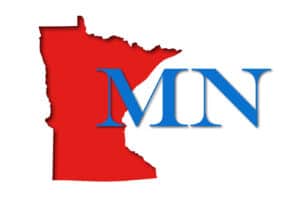HUD recently released Notice PIH-2012-18 to provide program instructions for the Rental Assistance Demonstration (RAD or Demonstration), including eligibility and selection criteria, and to solicit public comment on these instructions. RAD was authorized in the 2012 HUD appropriations bill, H.R. 2112. Although the Act specifies that HUD provide an opportunity for public comment only on draft eligibility and selection criteria / procedures that will apply to the selection of properties, HUD has decided to seek public comment on all program requirements.
Summary of Notice
The intended goal of the program is to test the conversion of public housing and other HUD-assisted properties to long-term, project-based Section 8 rental assistance to achieve certain goals, including the preservation and improvement of these properties through access by public housing agencies (PHAs) and owners to private debt and equity to address immediate and long-term capital needs.
There are two separate components of the program. The first component allows projects funded under the public housing and Section 8 Moderate Rehabilitation (Mod Rehab) programs to convert their assistance to long-term, project-based Section 8 rental assistance contracts. The second component allows owners of projects funded under the Rent Supplement (Rent Supp), Rental Assistance Payment (RAP), and Mod Rehab programs to convert tenant protection vouchers (TPVs) to PBVs, upon contract expiration or termination occurring after October 1, 2006, and no later than September 30, 2013. While there is no cap on the number of units that can convert assistance under this component of RAD, and no requirement for competitive selection, actions under this component are subject to the availability of TPVs.
Notice PIH-2012-18 is divided into three sections based on the program’s intended audience: PHAs, owners of Mod Rehab projects and owners of Rent Supp and RAP projects. A section by section analysis is as follows:
Section I: This section provides proposed instructions to PHAs and their partners that are eligible for the conversion of public housing project assistance to long-term, project-based Section 8 rental assistance under the first component of RAD.
PHAs will apply competitively to convert assistance of projects and applications must be submitted for specific projects. Following review and selection of application, the PHA will execute with HUD a Commitment to enter into a Housing Assistance Payment (CHAP) contract, under which the PHA will have to present a Financing Plan for HUD to approve. After HUD approval of the long-term viability of the Financing Plan and successful closing of the conversion, the project will receive a long-term Section 8 HAP contract. Upon conversion, covered projects will be removed from the public housing program and will be released from the public housing Declaration of Trust (DOT). The notice also lays out certain eligibility requirements, financing considerations, selection criteria, and example documentation.
Section II: This section provides proposed instructions to owners of Mod-Rehab projects that wish to covert the assistance of these projects to long-term, project-based Section 8 rental assistance contracts or PBVs under the first or second component of RAD.
For conversions under the first component of RAD, or that in which Mod-Rehab owners covert assistance to PBRA or PBVs (at current funding levels), owners will apply competitively to convert assistance of projects. Following review and selection of application, the owner will execute with HUD a Commitment to enter into a Housing Assistance Payment (CHAP) contract, under which the Mod Rehab owner will have to present a Financing Plan for HUD to approve. After HUD approval of the long-term viability of the Financing Plan and successful closing of the conversion, the project will receive a long-term Section 8 HAP contract. The notice also lays out certain eligibility requirements, selection criteria, certain special provisions affecting conversions to PBRA, etc.
For conversions under the second component of RAD, or the project-basing of enhanced vouchers (EVs), Mod-Rehab owners may request to convert Section 8 enhanced vouchers assistance to Section 8 PBV assistance for which assisted families residing in units under the Mod Rehab HAP contract would otherwise be eligible (or that may have already have been issued). HUD notes that this may occur only at contract expiration and is subject to the availability of tenant protection voucher (TPV) funding. Under the Demonstration, an owner may request to enter into a PBV HAP contract with the administering PHA for a term of 15 years at the Mod Rehab property in lieu of the issuance of EVs to eligible families. In such cases, EVs converted to PBVs will have rents determined by the administering PHA’s PBV program. HUD will consider two types of conversions: prospective conversions or retroactive conversions which differ based on when the initial contract expires. The request for conversion must first be made to the PHA that serves as the Mod Rehab Contract Administrator, which must consent to the conversion. HUD Headquarters will verify the PHA consent as part of the review of the Mod Rehab owner’s request. In all cases, the PHA that will administer the PBV contract will be the same PHA that administered the Mod Rehab HAP contract prior to expiration. The notice also includes information regarding eligibility requirements under this section, submission guidelines for prospective conversions, a sample notification letter, and more.
Section III: Provides interim instructions to owners of Rent Supp and RAP projects, who can convert the assistance of projects to Section 8 project-based voucher (PBV) assistance under the second component of RAD.
Owners may elect to receive a 15-year Section 8 project-based voucher (PBV) contract at the property, subject to annual appropriations, in lieu of tenant protection vouchers (TPVs) that would be provided or have been provided in response to a Rent Supp or RAP contract expiration, or termination due to a mortgage prepayment. HUD will consider two types of conversions: prospective conversions and retroactive conversions. Prospective conversions include projects where the termination or expiration of the contract occurs at least 60 days after the issuance of Notice PIH-2012-18 or the termination or expiration of the contract occurred after October 1, 2010, but before the issuance of Notice PIH-2012-18 (where TPVs were not provided). Retroactive conversions include projects where the termination or expiration of the contract occurred after October 1, 2006 and TPVs were provided, the termination or expiration occurs within 60 days of issuance of Notice PIH-2012-18, or the termination or expiration occurs within 60 days of the owner’s request for conversion. The notice also includes eligibility requirements, submission considerations, processing criteria, and sample notification letters.
Click here to read HUD Notice PIH-2012-18 on the Rental Assistance Demonstration (RAD).
HUD Call for Comments
Specifically, HUD is looking for comments on the following aspects of the Demonstration:
- Selection Criteria. Comments should be submitted regarding the simplicity of submission requirements and selection criteria, and how well those requirements encourage PHAs to address the backlog of capital needs at public housing properties.
- Cap on Mod Rehab Project Conversions. How does the proposed cap on Mod Rehab properties (1,250 total units) affect prospects for effective conversion of assistance for either or both Mod Rehab and public housing properties?
- Contract Rents. HUD is interested in receiving comments on how policies on contract rent setting might best facilitate PHAs and owners in accessing needed capital and securing firm financing plans.
- Conversion Contingent upon Firm Financing Plan. HUD wants to make sure that only projects that are financially viable execute a final HAP and permanently convert their form of assistance through a two-step process. Do the timeframes and milestones in the Notice make sense?
- Resident Notification and Consultation. PHAs and owners must consult with tenants about intent to apply for conversion. Do the proposed instructions protect tenants, ensure their participation, and balance the goals of preserving the properties and maximizing tenant options?
- Rent Adjustments. Under the first component of RAD, converted projects will have contract rents adjusted annually only by HUD’s Operating Cost Adjustment Factor (OCAF), PHAs and Mod Rehab owners must be reasonably confident that existing funding committed is sufficient to meet operating expenses during the term of the initial contract. HUD is interested in receiving comments on other actions the agency can take to assure high-quality management and maintenance of properties that convert assistance under RAD.
- Addressing Capital Needs and Encouraging Preservation. The demonstration allows for both substantial private debt and/or equity capital to address capital repairs and the ability to capitalize a replacement reserve account matched. Do the rehabilitation-related ranking factors encourage PHAs and owners to address the backlog of capital needs?
- Public Housing Mixed-Finance Projects. HUD believes the public housing properties that have not benefited from the Mixed Finance program should have greater access to RAD’s limited authority. Accordingly, HUD limited eligibility to Mixed-Finance projects with a Date of Full Availability prior to July 1, 2002. HUD is interested in receiving comments on how the agency can reasonably implement this rule.
- Waivers. HUD lists in each section related to PHAs, Mod Rehab, Rent Supp and RAP, the waivers that are applicable to the specific type of conversion being undertaken. HUD invites comments on the range of waivers proposed to be offered and the need, if any, for additional waivers to facilitate successful RAD conversions by property type.
- No Partial Project Conversions. For administrative reasons, HUD will accept applications only for complete project conversions and is interested in receiving comments on any potential unintended consequences of this policy.
- Choice-Mobility. HUD’s goal is to provide all residents of converted projects with viable options to obtain a Housing Choice Voucher and move from a converted property as they deem in their best interests. HUD is interested in receiving comments on how the indicated choice-mobility objectives can best be achieved in the demonstration through the indicated ranking factors or other actions that it might facilitate.
- Demonstration Design. HUD would like feedback on additional modifications to the design to maximize for learning and the long-term viability of converted properties.
Notice PIH-2012-18 seeks public comment on all instructions and criteria from Sections I, II, and III; however, HUD has indicated that the guidelines within Section III are effective upon issuance of the Notice. Those interested should submit comments electronically or by mail no later than April 9, 2012.
- Electronic Submission of Comments (strongly encouraged). Interested persons may submit comments electronically through the Federal eRulemaking Portal at www.regulations.gov.
- Submission of Comments by Mail. Comments may be submitted by mail to the Regulations Division, Office of General Counsel, Department of Housing and Urban Development, 451 Seventh Street, SW, Room 10276, Washington, DC 20410-0500.
Questions regarding this notice or submission of comments in general may be submitted to rad@hud.gov.
Click here to read the press released from HUD.
Webinars
HUD has planned four upcoming webinars to cover the basics of Notice PIH-2012-18 and the Sections therein:
- RAD Notice Overview – March 12, 2012 2pm EST
- RAD Section I Public Housing – March 15, 2012 3pm EST
- RAD Section II Mod Rehab – March 16, 2012 2pm EST
- RAD Section III Rent Supp and RAP – March 16, 2012 3pm EST
Click here to view details about these upcoming webinars.
Next Steps
NH&RA is soliciting volunteers who would be interested in analysing the proposal and drafting some comments. We will also tentatively meet with HUD to discuss further in April. If you are interested, please contact Thom Amur at 202-939-1753 or tamdur@housingonline.com.



